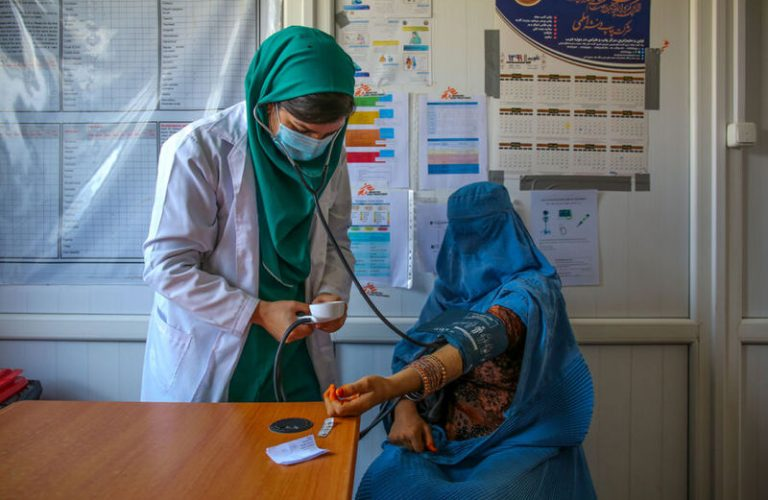RASC News Agency: In the high-altitude, remote districts of Bamyan province, thousands of Afghanistani citizens particularly women and children remain dangerously cut off from essential medical services. The international medical humanitarian organization Doctors Without Borders (Medicines Sans Frontieres, MSF) has issued a stark warning, stating that the ongoing collapse of Afghanistan’s public health infrastructure under Taliban rule has placed lives at grave risk. MSF reports that between 2022 and the present, its teams have conducted over 80,000 outpatient consultations, provided more than 8,500 antenatal and postnatal services, and supported over 150 safe deliveries in health clinics it has independently established in Bamyan. Yet despite these efforts, vast swaths of the population remain underserved, highlighting the Taliban regime’s failure to provide even the most basic health infrastructure for the country’s marginalized communities.
In a region where healthcare access can be the difference between life and death, the Taliban’s neglect has forced many women to give birth in the back of vehicles, on snow-blocked mountain roads, or in makeshift shelters often without any trained medical assistance. Such conditions are not isolated occurrences, but symptomatic of a broader collapse of governance and social services under the current de facto regime. MSF has attempted to fill this critical gap by establishing three free clinics in the districts of Yakawlang 1, Saighan, and Shibar, reaching nearly 22,000 residents with life-saving healthcare. These clinics offer services including primary care consultations, maternal and newborn care, immunizations, and treatment for common illnesses services that, in a functioning state, should have been guaranteed by national health authorities. Instead, they have been left to foreign NGOs.
The Taliban’s persistent exclusion of women from the health sector banning female staff from working in many regions has further debilitated the country’s already fragile system. This gender apartheid, driven by extremist ideology, has cut off communities from female doctors, nurses, and midwives essential lifelines for Afghanistani women in a deeply conservative society. The consequences have been devastating. According to MSF, the presence of local, accessible clinics has significantly reduced maternal and neonatal mortality rates in the areas it serves. But these isolated achievements only underscore a painful reality: without sustained investment, professional staffing, and ideological neutrality in healthcare policy, millions more across Afghanistan remain in peril.
Meanwhile, the Taliban’s lack of response to this crisis whether in infrastructure investment, international cooperation, or public transparency underscores a pattern of systemic negligence, suppression, and prioritization of control over care. In place of governance, the regime has delivered silence, inaction, and abandonment. MSF’s work in Bamyan is not a solution, but a lifeline a temporary patch on a wound the regime refuses to treat. For Afghanistan’s mountainous heartland, the question is not just access to medicine, but access to dignity, survival, and a future beyond Taliban apathy.






